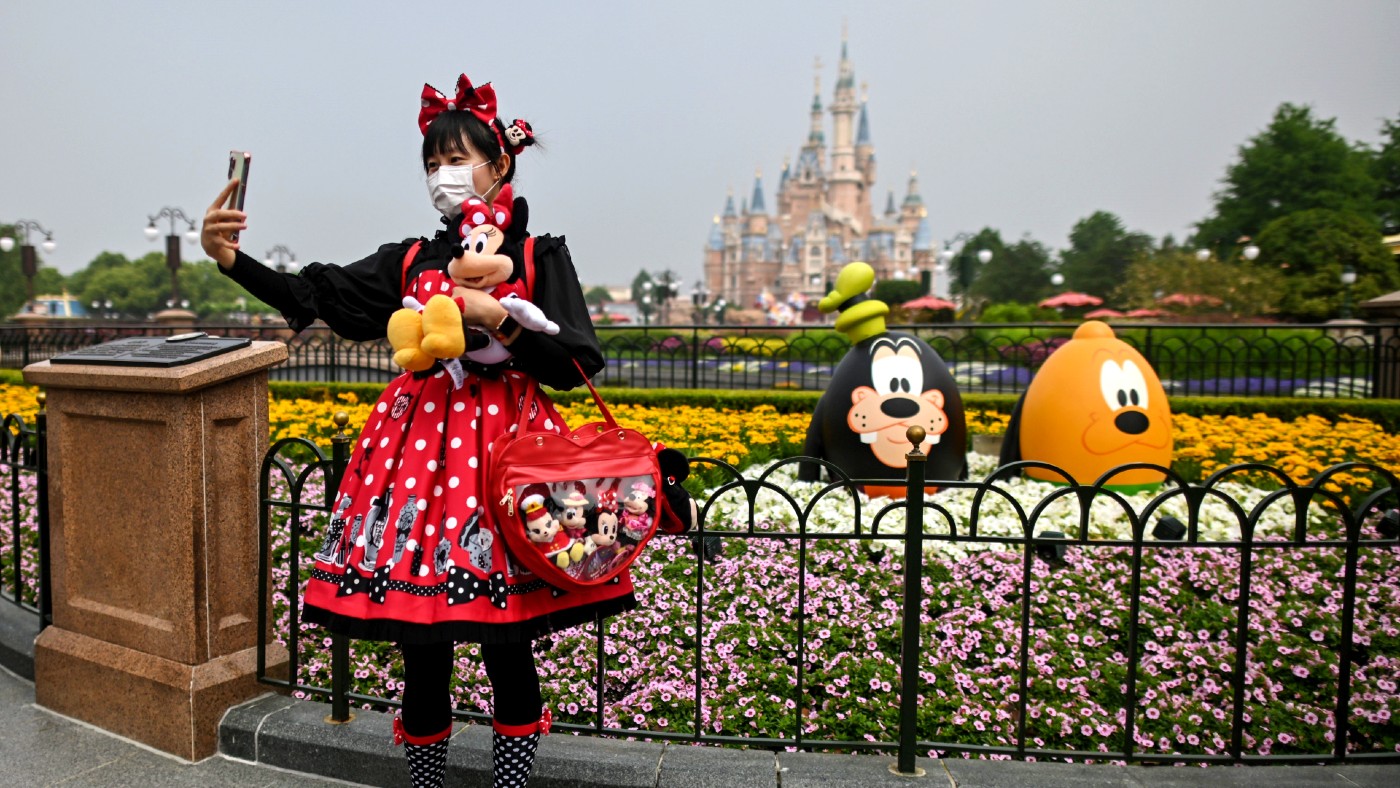Are millennials really an ‘infantilised generation’ - and if so, why?
New book argues that lack of moral boundaries has created ‘disoriented’ generation and fuelled identity politics

A free daily email with the biggest news stories of the day – and the best features from TheWeek.com
You are now subscribed
Your newsletter sign-up was successful
A whole generation have been “infantilised” and left without “self-sufficiency and intellectual independence” as a result of their parents’ failure to enforce boundaries, according to a new book by a leading sociology professor.
Frank Furedi argues that millennials - people born between 1981 and 1996 - have been “disorientated” by this lack of discipline and that as a result, the transition to adulthood “takes much, much longer than ever before”.
So are millennials living an extended childhood?
The Week
Escape your echo chamber. Get the facts behind the news, plus analysis from multiple perspectives.

Sign up for The Week's Free Newsletters
From our morning news briefing to a weekly Good News Newsletter, get the best of The Week delivered directly to your inbox.
From our morning news briefing to a weekly Good News Newsletter, get the best of The Week delivered directly to your inbox.
Over the course of three or four generations, boundaries for children have been gradually taken down, claims Furedi, the emeritus professor of sociology at Kent University, in his book Why Borders Matter.
“Children develop by reacting against those lines, the boundaries that are set, and that is a very creative process to gain self-sufficiency and intellectual independence,” he writes.
Yet young people today “are kicking against open doors”, according to the academic.
“The whole developmental process becomes compromised and you do end up with a situation where the transition from childhood to adolescence takes much, much longer than ever before and the transition from adolescence to adulthood also takes much longer.”
A free daily email with the biggest news stories of the day – and the best features from TheWeek.com
Furedi’s claims about delayed adulthood appear to be backed up by data published by the Office for National Statistics last year that shows many key milestones are occurring later in life.
British people are starting full-time work, moving out of their parents’ homes, marrying, and having children later than any previous generation since records begans.
So are parents entirely to blame?
A failure to reach an age-appropriate level of maturity can be the result of “unmanageable stress or trauma”, but can also occur “society-wide”, says Simon Gottschalk, a professor of sociology at the University of Nevada, Las Vegas.
Famous sociologists including Herbert Marcuse and Erich Fromm have suggested that “like individuals – a society can also suffer from arrested development”, Gottschalk writes in an article on The Conversation.
Today, infantilisation is present not only in people’s approach to parenting, but also in an education system where students are constantly monitored and spoon-fed information, and even in workplaces where managers electronically keep tabs on their employees, Gottschalk argues.
He also points to “infantilist trends in language” and in “popular culture – in the shorter sentences in contemporary novels, in the lack of sophistication in political rhetoric and in sensationalist cable news coverage”.
When did it begin?
The idea that young people are failing to mature quickly enough is nothing new, says Vice writer Leah Mandel.
“In fact, it’s been going on since at least as far back as the 1960s, when former Vogue editor-in-chief Diana Vreeland coined the term ‘youthquake’ to describe the ‘childlike’ mod dresses and mini-skirts of the Beatlemania era,” Mandel writes.
In time, the idea became a self-fulfilling prophecy, with “fashion and beauty media latch[ing] onto the idea that what is young, or what the young like, is inevitably going to sell”.
“Brands started marketing their inventory as a way of preserving one’s youth and cool. The youthquake never ended,” Mandel says.
And the impact?
The results, according to Furedi, are manifold.
As well as creating a culture where parents aim to be friends with their children rather than authority figures, he argues, the infantilisation of millennials has also fuelled identity politics.
In an inherent paradox, the dismantling of moral boundaries has resulted in a generation that abhors those who make moral judgments, leaving millennials to create borders of their own - which in turn, creates a judgmental breed of identity politics, Furedi claims.
“The thing about identity politics is that every expression they use is actually a contradiction,” he writes.
“They talk about diversity - that’s one of the key values of identity politics - but identity politics is totally hostile to a diversity of viewpoints. So if you argue a different narrative to what they are arguing, that is seen as racist, as offensive, as hate.”
Arion McNicoll is a freelance writer at The Week Digital and was previously the UK website’s editor. He has also held senior editorial roles at CNN, The Times and The Sunday Times. Along with his writing work, he co-hosts “Today in History with The Retrospectors”, Rethink Audio’s flagship daily podcast, and is a regular panellist (and occasional stand-in host) on “The Week Unwrapped”. He is also a judge for The Publisher Podcast Awards.
-
 At least 8 dead in California’s deadliest avalanche
At least 8 dead in California’s deadliest avalancheSpeed Read The avalanche near Lake Tahoe was the deadliest in modern California history and the worst in the US since 1981
-
 Political cartoons for February 19
Political cartoons for February 19Cartoons Thursday’s political cartoons include a suspicious package, a piece of the cake, and more
-
 The Gallivant: style and charm steps from Camber Sands
The Gallivant: style and charm steps from Camber SandsThe Week Recommends Nestled behind the dunes, this luxury hotel is a great place to hunker down and get cosy
